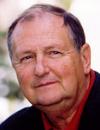David Brady - Deputy Director, The Hoover Institution
David Brady is Professor of Political Science, School of Humanities and Sciences, Deputy Director and Davies Family Senior Fellow, Hoover Institution, Morris M. Doyle Centennial Chair in Public Policy, Emeritus and Senior Fellow, Stanford Institute for Economic Policy Research.
Brady's research focuses on the American Congress, the party system, and public policy. He has studied the critical congressional realignments of 1860, 1896, and 1932, and has concluded that the rising number of safe seats and the waning importance of presidential coattails have made it much more difficult for a realigning election to take place in the United States. He also has written on Internet voting, the women's movement, regulation of the nuclear industry, apportionment, the Supreme Court handling of abortion, and Korean and Japanese politics. He presently heads a joint project between the Brookings Institution and the Hoover Institution on Polarization in American Politics.
David Brady began his teaching career at Kansas State University in 1970, from there moved to Houston, Texas, where he taught at both the University of Houston and Rice University, where in 1981 he was named Autry Distinguished Professor of Social Science. In 1986 he moved to Stanford University with a joint appointment in the Graduate School of Business and Political Science. While at Stanford he has served as Associate Dean for Academic affairs in the GSB and as Vice Provost for Distance Learning at Stanford. He has twice been a fellow at the Center for Advanced Study in the Behavioral Sciences and was elected to the American Academy of Arts and Sciences in 1987. He presently holds the Bowen H. and Janice Arthur McCoy Professorship in Ethics at the Business School and is Deputy Director of the Hoover Institution.
Professor Brady's teaching focuses on non-market strategy for corporations and ethical applications in building quality companies. In addition to his Business School teaching he also teaches an undergraduate course in public policy. He has been awarded several teaching awards including the prestigious Dinkelspiel and Phi Beta Kappa distinguished teacher prizes.
His research focuses on the ties between elections, institutions (especially legislatures) and public policies. This work includes studies of American political history and comparitive studies of Britain, Ireland, Korea and Japan. His most recent project is as codirector of the Hoover Brookings joint project on political polarization in America.



